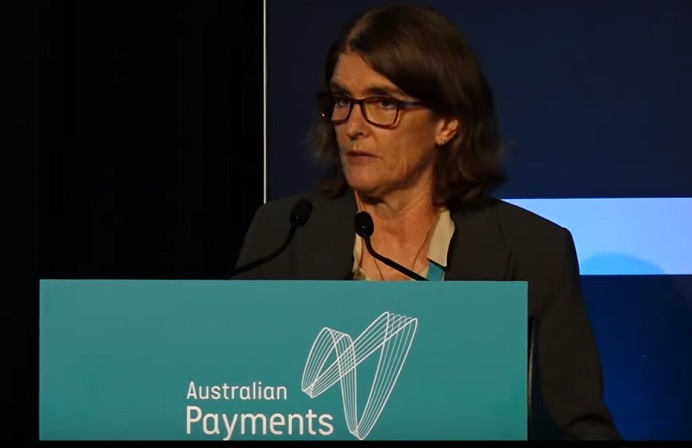
Reserve Bank of Australia (RBA) Governor Michele Bullock has resisted calls to force banks and other authorised deposit institutions (ADIs) to enable a real-time payments capability, declaring that regulation remains “a last resort” for the RBA.
Speaking at the Australian Payments Network summit on Tuesday, Bullock said the RBA would not, at least for now, mandate an obligation that would force banks and other ADIs to move off the Bulk Electronic Clearing System (BECS) – which is still used to process the vast majority of salary and welfare payments as well as recurring payments to merchants – and onto the New Payments Platform’s (NPP’s) real-time payments rail.
The RBA has proposed decommissioning BECS by 2030.
Bullock said: “Some financial institutions are not yet connected to the NPP, while others that are connected have not yet made all their accounts reachable.
“Until all accounts are connected, it will be difficult for companies and governments to migrate existing payments such as payroll to the NPP.”
She did not, however, entirely rule out forcing industry’s hand if required.
“I’d like to think we won’t have to mandate [the move to NPP] but what we will be doing is publishing [and] talking about when we’re not happy with progress in the industry,” Bullock said.
“We’ll be talking to your executives, we’ll be talking to the ABA [Australian Banking Association], we’ll be talking to people and pushing very hard.
“In the end, if it requires a mandate, then we’ll do it… as regulation. But we’d prefer, really, just to work with the industry to get it done.”
As of October 2022, more than 110 financial institutions have connected to NPP payment services, enabling real-time payments for around 88 million customer accounts, NPP Australia, which oversees the fast payments rail, has reported.
BECS, still considered the “workhorse” of Australia’s payments system, processed around three-quarters of non-cash payments by value over the 2022/23 period and is “still heavily relied on by many businesses and government agencies” Bullock said.
She acknowledged that while migration will “take considerable investment and time… it is important that work begins now to ensure that end users are not disrupted when BECS is retired”.
However, Bullock cautioned against a full-throttled shift to the NPP, flagging still lingering concerns over the reliability, uptime and costs of the network.
The NPP, which saw an average of more than 20 hours of downtime per service provider in the year to September 2023, was deemed by Bullock the “least reliable” retail payment service. The BECS network, by comparison, recorded around five hours of downtime per provider over the same period.
“As more volume shifts from BECS to the NPP, it is important that providers improve the reliability of their NPP services,” Bullock said.
“Decommissioning BECS should reduce the costs and complexity involved in running two account-to-account payment systems in parallel. But it would also mean that BECS is not available as a backup option when NPP services are down.
“There will be even less tolerance from the community for outages to NPP services when most wages and benefit payments start going through the NPP.”
She added: “Improving the reliability of NPP services across the industry will be a major focus of the RBA over the coming years.”
Cost also appears a significant inhibiter to NPP migration, Bullock acknowledged.
“We hear from users that processing payments through BECS is significantly cheaper than processing them through the NPP, especially for regular payments such as payroll,” Bullock said.
“Employers are typically making such payments every couple of weeks, sometimes for thousands of employees, and so the cost of each individual transaction can really add up.”
For financial year 2022, NPP Australia reports that the implied break-even wholesale cost on the NPP is around $0.061 per transaction.
She did, however, recognise some “less visible costs associated with BECS payments”, including manual reconciliation and managing mistaken payments, “given BECS’ limited messaging and addressing capabilities”.
She said the RBA will undertake a review of end-user costs of account-to-account payments through BECS and the NPP “to provide greater transparency” to the industry.
Further, Bullock pushed the case to develop “a standardised industry approach to processing bulk payments through the NPP”, noting the fast payments system – which operates on a line-by-line rather than batch basis – still lacks a means to efficiently process bulk payments, among which include salaries and welfare payments.
“Many businesses and government agencies have bulk payment capabilities, and it will take time and effort to enable these payments to be processed via the NPP,” she said.
Standardisation, she said, “could promote interoperability, efficiency and competition in processing bulk payments and give businesses and government entities more time to transition their systems” to the NPP.





